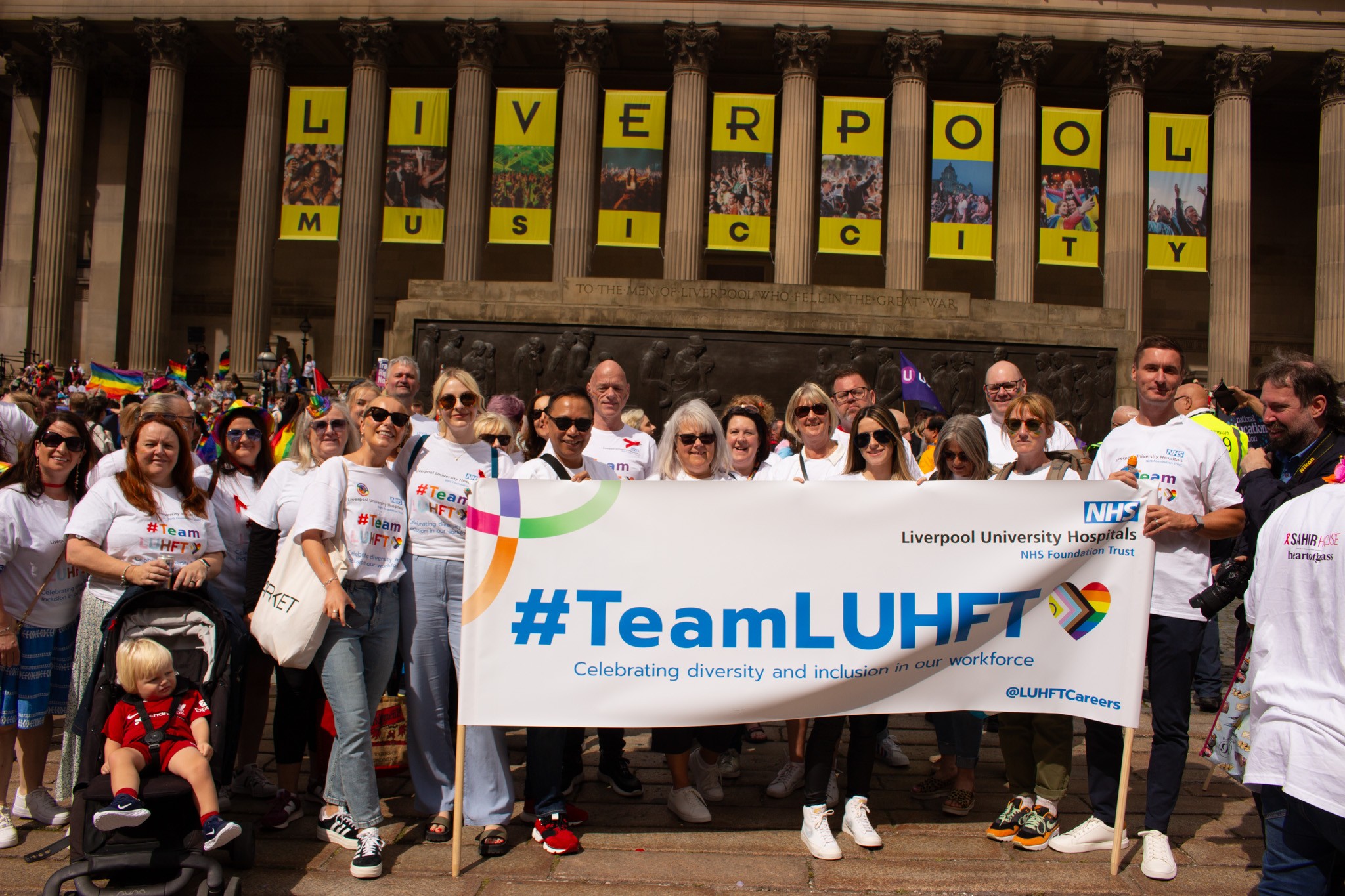The Government's 10 Year Health Plan for England has been launched, setting out a bold, ambitious and necessary new course for the NHS.
'Fit for the Future' sets out how the government intends to tackle the challenges and inequalities our communities face in three key shifts: hospital to community; analogue to digital; and sickness to prevention.
It has been shaped by the experiences and expectations of members of the public, patients, our partners and health and care workforce across the country, reflecting the changes that people wanted to see.
You can read the full plan here.
Wes Streeting, Secretary of State for Health and Social Care, and Sir James Mackey, CEO of NHS England, have also written an open letter to staff about the plan.
Below are some of the key elements of the plan, and how they link to our work at UHL Group.
The three shifts
From hospital to community
Transforming healthcare with easier GP appointments, extended neighbourhood health centres, better dental care, quicker specialist referrals, convenient prescriptions, and round-the-clock mental health support - all designed to bring quality care closer to home.
From analogue to digital
Creating a seamless healthcare experience through digital innovation, with a unified patient record eliminating repetition, AI-enhanced doctor services and specialist self-referrals via the NHS app, a digital red book for children's health information, and online booking that ensures equitable NHS access nationwide.
From sickness to prevention
Shifting to preventative healthcare by making healthy choices easier—banning energy drinks for under-16s, offering new weight loss services, introducing home screening kits, and providing financial support to low-income families
What this means for us
Health inequalities and a neighbourhood focus
Liverpool is one of the most deprived areas in the country, and the 10YHP acknowledges that working-class communities and coastal areas need major changes to support the health issues facing patients every day.
As part of the 10YHP the government will launch a Neighbourhood Health Service – aiming to improve access to the NHS on people’s doorsteps and shift care out of hospitals and into the community. This focus aligns with our Group Transformation Plan (GTP) and future care model, as we know that all too often patients within our care are not in the right place for their health needs.
These neighbourhood health centres will stop people from having to make lengthy trip to hospitals. Neighbourhood teams will include staff like nurses, doctors, social care workers, pharmacists, health visitors, palliative care staff, and paramedics.
Community health workers and volunteers will play a pivotal role in these teams, and local areas will be encouraged to trial innovative schemes like community outreach door-to-door – to detect early signs of illness.
There is also the ambition by 2023 that the majority of outpatient care will happen outside of hospitals. New digital tools will allow GPs to refer patients quicker, and a wider range of services available on people’s doorsteps will mean less need to attend appointments in hospital for ophthalmology, cardiology, respiratory medicine, and mental health.
This shift in making care more accessible will not only work to reduce health inequalities, but also relieve pressures on our sites so that we can focus on delivering what we do best, providing high quality, timely and personalised care.
Prevention from birth to beyond
By creating a health system that better meets the needs of our population, with a focus on preventative care that keeps patients healthy and out of hospital, with care closer to home, we can tackle the inequalities that are really affecting our local population.
Alongside bringing historically hospital-based services into the community, the neighbourhood health centres will also offer services like debt advice, employment support and stop smoking or weight management, all of which will help prevent and tackle issues which we know affect people’s health.
The 10YHP states there will also be significant investment into genomics, with ambitions for every baby born in the UK to undergo whole genome sequencing (DNA testing), to allow personalised care before symptoms occur. This means we can always be at the heart of providing the right care from birth and beyond, enabling those patients who may have long-term or chronic conditions, treatment from a much earlier stage.
As part of our Group Transformation Plan (GTP), we will continue to empower sites to own their transformation journey, address hospital-specific challenges and build on opportunities at site, but also with partners such as these neighbourhood health centres, to create a healthcare system that is fit for purpose.
Operating model changes
There has been a big shift in the operating model at NHS England and our Integrated Care Boards, as they work to streamline governance and reduce duplication so that spending and resource can be reinvested where it is needed most.
As a result of these changes there have been some very challenging asks for all NHS organisations, with increased scrutiny on our finances and vacancy control. We thank all colleagues for your continued patience and hard work as we navigate operating within these stricter remits.
Through the plan there will be further changes which will see other NHS agencies, such as Healthwatch, cease to exist. Our relationship with our local Healthwatch branches has been important over the years, and we value the role they have played in our improvement journey. We will ensure that the voices of patients and the public continue to be heard through other means.
Boost to research and digital-first
Research and clinical trials hold a significant role in how we will be able to improve the care we can provide our patients. At UHL Group we already have a strong research, development and innovation portfolio, and colleagues are focused on doing what you can to bring research into our day-to-day care of patients.
In the future, our new Electronic Patient Record (EPR) will only bolster this approach and make it easier for us to identify suitable patients for trials that could be life changing. The 10YHP’s investment into the NHS App will also support our RD&I plans, as it will encourage the public to sign up for trials directly through this – broadening the opportunities for our communities to get involved.
The NHS App will be central to a lot of the improvements set to fall out of the 10YHP, with ambitions for it to become a single patient record, alongside prescription tracking, appointment reminders, test results and much needed mental health support.

